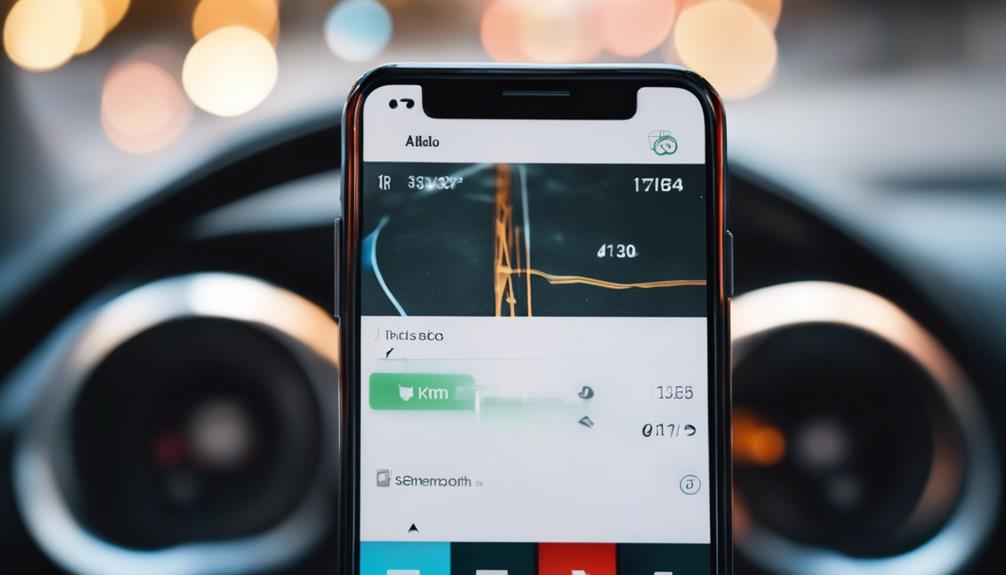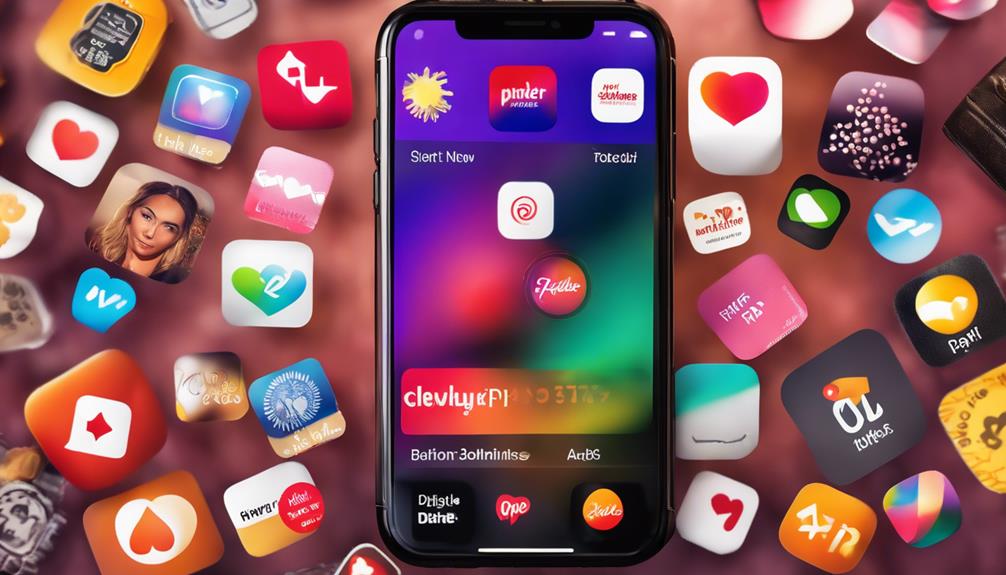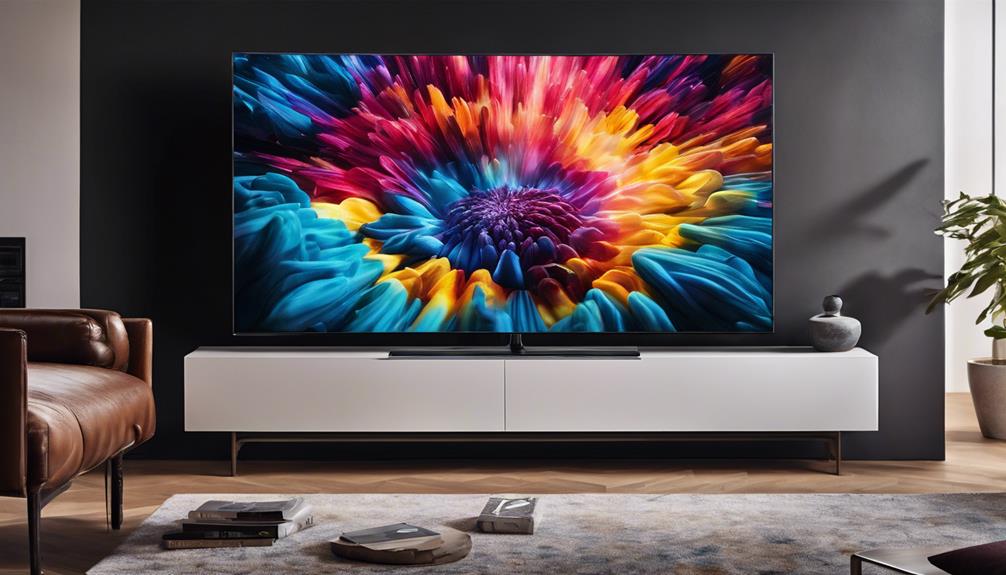Google's Android Auto app features a USB Startup Diagnostics tool that efficiently assesses USB cable functionality, enabling quick detection of connectivity issues and ensuring seamless data transfer. By identifying faulty cables, users can maintain peak performance and enhance their Android Auto experience through reliable connections. Utilizing this feature can preemptively address potential cable-related issues, promoting smooth operation and peak system efficiency. Explore how this innovative tool can elevate your Android Auto usage further.
Key Takeaways
- New USB Startup Diagnostics feature in Android Auto.
- Instant cable health check for quick assessment.
- Identifies faulty cables impacting connectivity.
- Emphasizes original cable use for reliability.
- Ensures enhanced user experience through accurate testing.
USB Cable Diagnostic Tool Overview
The USB Cable Diagnostic Tool, a new feature in Google's Android Auto app, instantly checks the functionality of users' USB cables. This diagnostic feature is designed to help users identify if their USB cable is causing connectivity issues, ensuring proper data transfer and aiming to enhance user experience. By running a quick diagnostic test, users can determine if their USB cable is in good working condition or if it needs to be replaced for best performance.
Google recommends using original phone-packed USB cables to avoid connectivity problems. This tool is a valuable addition to the Android Auto app, providing users with a convenient way to troubleshoot potential issues related to their USB cables. By leveraging this diagnostic feature, users can quickly pinpoint any problems with their USB cables and take appropriate action to rectify them. Ultimately, the USB Cable Diagnostic Tool serves as a practical solution for ensuring seamless connectivity and data transfer while using Android Auto.
Identifying Faulty USB Cables

Detecting faulty USB cables is vital for ensuring smooth connectivity and data transfer with Android Auto. Thanks to Android Auto's USB Startup Diagnostics tool, users can now easily identify if their USB cables are functioning properly. This diagnostic feature plays an important role in helping users pinpoint any issues with phone-car connectivity, ensuring a seamless experience.
It's recommended to use specific types of USB cables to optimize performance with Android Auto. Faulty USB cables can result in frequent connection problems with the platform, disrupting the overall user experience. Hence, it's imperative to pay attention to the quality of the USB cables being used to avoid such issues.
Benefits of Using High-Quality Cables
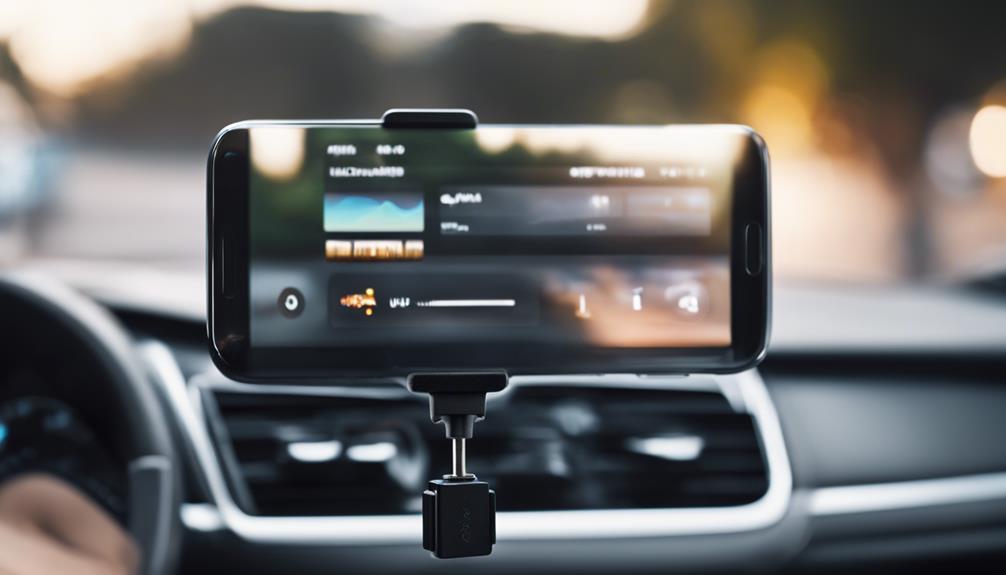
Using high-quality cables guarantees stable data transmission for Android Auto. Quality cables reduce the risk of connectivity issues and data transfer interruptions, ensuring a seamless experience when using the app.
Google recommends using original phone-packed USB cables to achieve peak performance, as these cables meet necessary standards for Android Auto operation. Additionally, investing in reputable third-party cables that adhere to USB-IF standards can further enhance connectivity and data transfer efficiency.
Improving Data Transfer Efficiency
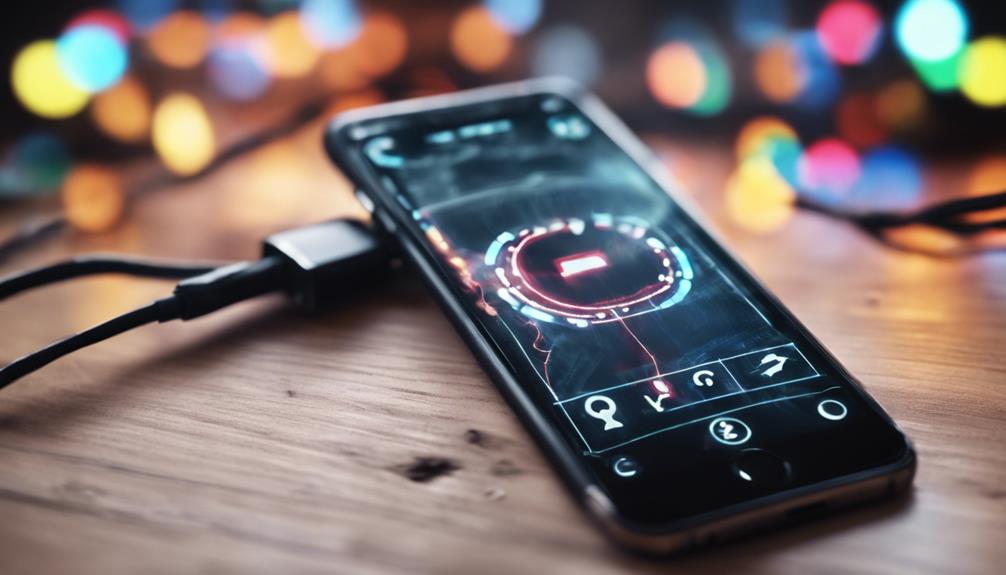
To enhance data transfer efficiency, prioritizing the use of high-quality USB cables is crucial. The latest Android Auto update introduces a USB Startup Diagnostics Tool that can identify faulty cables impacting data transfer performance. Google recommends utilizing original phone-packed USB cables to guarantee peak functionality. By adhering to proper cable specifications, users can boost data transfer reliability substantially. The diagnostic tool simplifies the process of testing cables, emphasizing the critical role of quality USB connections in maintaining efficient data transfer.
| USB Startup Diagnostics Tool | Benefits |
|---|---|
| Identifies faulty cables | Guarantees peak performance |
| Simplifies cable testing process | Boosts data transfer reliability |
Simplifying Cable Testing Process

The introduction of Android Auto's USB cable diagnostic feature streamlines the process of testing cable functionality. By incorporating this feature, users can easily determine if their USB cable is causing connection issues. Accessible through the Connection Help menu, this diagnostic tool swiftly identifies subpar cables, advising users to utilize the original USB cable that accompanied their device for best performance.
Emphasizing the significance of quality USB cables, the diagnostic check promotes dependable data transfer, ensuring a seamless user experience. Not only does this feature simplify the cable testing process for users, but it also sets a new standard for efficient system checks. The implementation of such a feature by Android highlights the importance of cable quality in ensuring reliable connectivity.
This innovation could potentially pave the way for other operating systems to adopt similar diagnostics, enhancing user experience and reducing troubleshooting efforts.
Setting New Industry Standards

Setting a benchmark for cable quality in automotive technology, Google's Android Auto app revolutionizes industry standards with its USB Startup Diagnostics Tool. By introducing this innovative feature, Google is reshaping how USB cable quality is evaluated in the automotive sector.
The USB Startup Diagnostics Tool allows users to easily identify faulty USB cables that may be hindering the connectivity between their phones and cars when using Android Auto. This tool not only detects bad cables but also recommends using original phone cables or reputable third-party cables to guarantee peak performance.
In doing so, Google is setting a new standard for diagnosing USB cable issues within the automotive technology industry. With the ability to pinpoint problematic cables quickly and efficiently, users can now address connectivity issues with greater ease and accuracy, ultimately enhancing their overall experience with Android Auto.
This initiative underscores Google's commitment to improving user satisfaction and driving industry-wide advancements in cable quality standards.
Enhancing User Experience

Enhancing user experience, Android Auto's USB cable diagnostic feature streamlines connectivity by swiftly identifying faulty cables. This diagnostic capability allows users to pinpoint issues affecting their connection promptly, eliminating the frustration of troubleshooting.
By checking the Connection Help menu, users can access the diagnostics feature to identify subpar cables hindering their experience. The feature serves as a valuable tool in ensuring seamless connectivity by recommending the use of original, high-quality USB cables provided with phones.
Emphasizing cable quality, the diagnostic check underscores the significance of using cables that meet proper specifications for peak performance within the Android Auto ecosystem. By highlighting the importance of cable quality through diagnostics, users are empowered to make informed decisions that enhance their overall experience with the Android Auto app.
This proactive approach to cable management contributes to a smoother and more reliable connection, ultimately improving user satisfaction with the platform.
Google's Cable Quality Recommendations
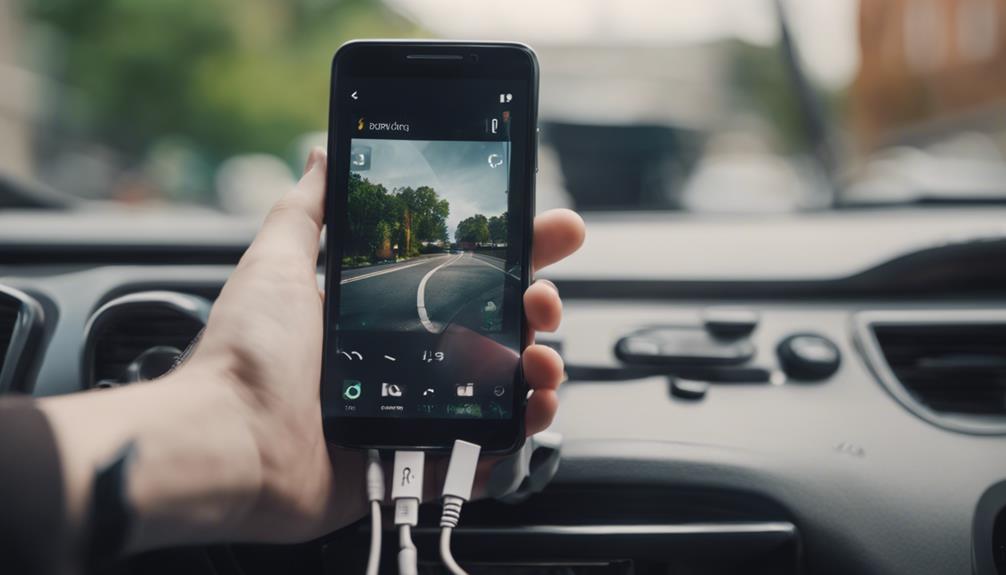
Google highlights the importance of using USB cables under three feet in length for peak performance with Android Auto. They suggest sticking to the original USB cable provided with the phone to guarantee the best user experience.
Ensuring compatibility between the phone's USB Type-C cable and the car's USB-A port is essential to prevent connectivity issues while using Android Auto.
Cable Quality Importance
High-quality USB cables play a pivotal role in guaranteeing a seamless experience with Android Auto, as recommended by Google. When it comes to cable quality, there are several key points to keep in mind:
- Using USB cables under three feet in length is suggested for the best Android Auto performance.
- It's advisable to utilize the original USB cable that came with the phone to secure the finest user experience.
- Third-party USB cables should comply with the USB-IF standard to ensure dependable performance with Android Auto.
- Compatibility issues may arise if the phone's USB Type-C cable doesn't match the car's USB-A port.
Google's Recommendation Criteria
For peak performance with Android Auto, prioritizing USB cables under three feet in length is recommended by Google. Using the original USB cable that came with the phone is advised to guarantee the best experience. It's important to account for compatibility between the phone's USB Type-C cable and the car's USB-A port to prevent any connectivity issues. When opting for third-party USB cables, it is essential that they adhere to the USB-IF standard for reliable performance with Android Auto. In cases where the original cable is unavailable, reputable third-party USB-C cables can be a suitable alternative. Making sure that the cable length is kept short can help minimize signal loss and interference, ultimately enhancing the connection stability between the phone and the car's USB port.
| Criteria | Recommendation |
|---|---|
| Cable Length | Under three feet for best performance |
| Original vs. Third-party | Prefer original USB cable; opt for reputable third-party cables if original is unavailable |
| Compatibility | Confirm compatibility between phone's USB Type-C cable and car's USB-A port |
Detecting Cable Defects
Detecting cable defects remains a crucial aspect of Google's recommendations for ensuring dependable performance with Android Auto. To achieve this, Google has introduced a new diagnostics tool within the Android Auto app that checks the cable quality.
Here are some key factors to keep in mind when evaluating cable defects:
- Opt for USB cables under three feet in length for best performance.
- It's advisable to use the original USB cable that came with the phone for the most satisfactory experience.
- Ensure compatibility by matching the phone's USB Type-C cable with the car's USB-A port.
- Third-party cables must adhere to the USB-IF standard to ensure reliable performance with Android Auto.
Importance of Cable Specifications
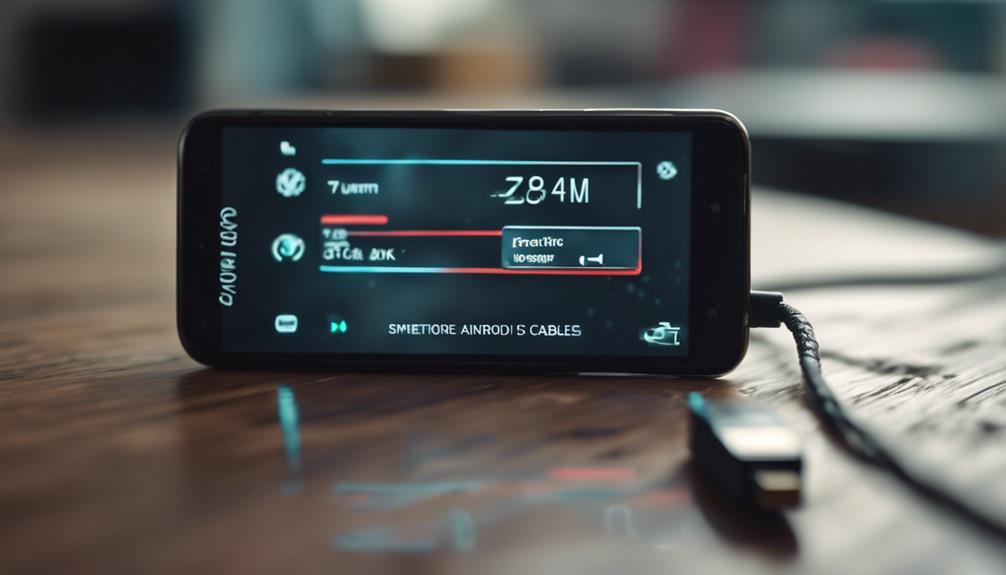
Ensuring the accurate specifications of the cable used is vital for maintaining a stable performance of Android Auto. With the latest Android Auto update, using a cable that meets necessary standards is essential to prevent connection issues.
Poor cable quality can result in various problems when interfacing with Android Auto, impacting the user experience. It's worth mentioning that different USB Type-C cables can possess varying specifications despite appearing similar externally. Selecting a cable that aligns with the required specifications is fundamental in ensuring the smooth operation of Android Auto.
The tool integrated into the latest Android Auto version aims to alleviate connection woes caused by substandard cables. By understanding and adhering to the cable specifications, users can optimize their Android Auto experience and mitigate potential connectivity disruptions.
Proper cable selection is a proactive step towards enhancing the functionality and reliability of Android Auto for seamless use in vehicles.
Diagnostic Feature Integration
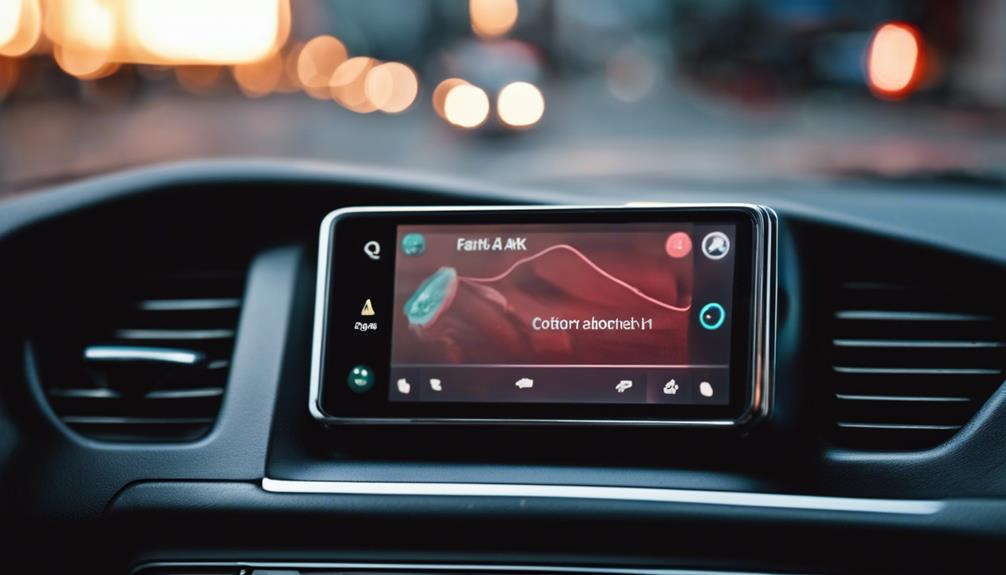
The new USB Startup Diagnostics feature in Android Auto offers users a Cable Health Check to guarantee proper connectivity between phones and cars. By running tests on data transmission and cable quality, users can receive troubleshooting recommendations for peak performance.
Google's emphasis on using quality cables aligns with the diagnostic tool's goal of detecting bad cables early to prevent ongoing connectivity disruptions.
Cable Health Check
With the integration of the Cable Health Check feature in Android Auto, users can now easily determine the quality of their USB cables at a glance. This diagnostic tool quickly assesses the cable's functionality, identifying if it's the source of any connection issues. The feature eliminates the hassle of repeatedly plugging and unplugging cables for testing purposes.
By emphasizing the importance of using high-quality USB cables, the Cable Health Check feature underscores the significance of proper cable specifications for ensuring stable and best connections.
- Instantly checks cable functionality
- Identifies potential connection issues
- Simplifies testing process
- Highlights the importance of high-quality USB cables
Troubleshooting Recommendations
To enhance user troubleshooting capabilities, Android Auto integrates a diagnostic feature that detects issues related to faulty cables or ports affecting connectivity. This USB Startup Diagnostics Tool assists users in identifying problems with data transmission and initiating Android Auto successfully.
Google emphasizes the importance of using original phone cables for peak performance. In cases where third-party cables are preferred, they should meet USB-IF standards to guarantee reliable connection. Selecting the appropriate cable is vital for ensuring a seamless experience with Android Auto.
Impact on Wired Connections
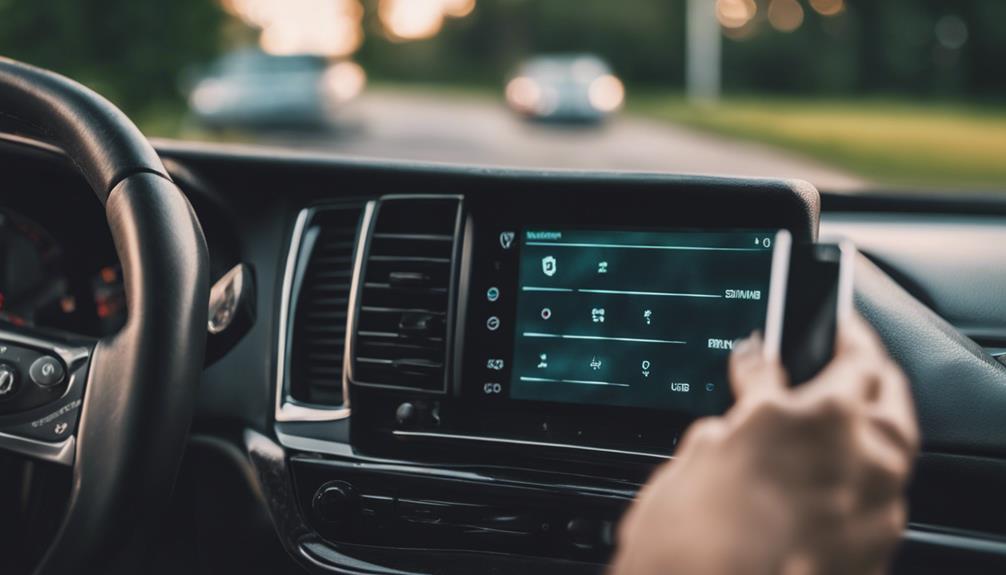
Using the USB diagnostic feature in Google's Android Auto app can revolutionize how users experience wired connections in their vehicles. This feature, known as USB Startup Diagnostics, has a significant impact on wired connections, especially with regards to cables. Here are some key points to take into account:
- The app's USB diagnostic feature checks the quality of cables, guaranteeing a stable and reliable connection.
- It swiftly identifies faulty cables, ensuring proper data transfer and preventing connection issues during vehicle use.
- Recommendations advise users to utilize original phone-packed USB cables for best performance, highlighting the importance of cable quality.
- The feature simplifies the process of cable testing by eliminating the need for constant plugging and unplugging, making it more convenient for users to verify seamless connectivity.
This emphasis on cable quality and the ability to detect faulty cables showcases how Android Auto enhances the reliability and performance of wired connections in vehicles.
Tech Industry Diagnostics Evolution
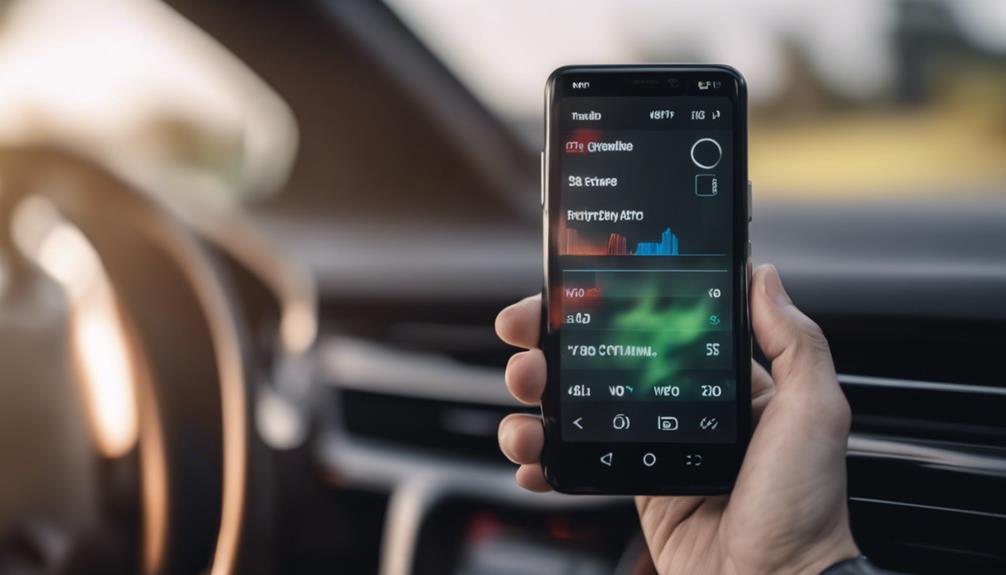
The evolution of tech industry diagnostics introduces advanced tools for enhancing system performance and user experience. With the introduction of Android Auto's new USB Startup Diagnostics feature, users can now easily test the quality of their USB cables without the need for constant plugging and unplugging.
This innovative diagnostic tool emphasizes the importance of using high-quality USB cables to guarantee peak performance. By highlighting the significance of adhering to proper cable specifications for efficient data transfer, this tool sets a new standard in diagnosing connection issues promptly.
The potential adoption of similar diagnostics by other operating systems could revolutionize the way users interact with their devices, streamlining the identification of connection problems and ultimately enhancing the overall user experience across various applications.
This shift towards more proactive diagnostics marks a significant step forward in the tech industry, empowering users to address potential issues before they impact functionality.
Ensuring Optimal Data Transfer

The introduction of Android Auto's USB Startup Diagnostics Tool guarantees users can easily verify their USB cable's functionality for best data transfer. This tool aids in identifying any issues with the USB cable or port, ensuring a seamless connection between the phone and the car.
To guarantee peak data transfer with Android Auto, users should consider the following:
- Using the recommended USB cable that's under three feet in length can enhance data transfer performance.
- Compatibility problems may arise if the phone's USB Type-C cable doesn't match the car's USB-A port, impacting data transfer quality.
- Opting for high-quality USB cables that meet necessary standards can prevent connectivity issues and ensure smooth data transfer.
- Regularly utilizing the USB Startup Diagnostics Tool can help maintain an efficient connection and peak data transfer experience with Android Auto.
Significance of Original Cables
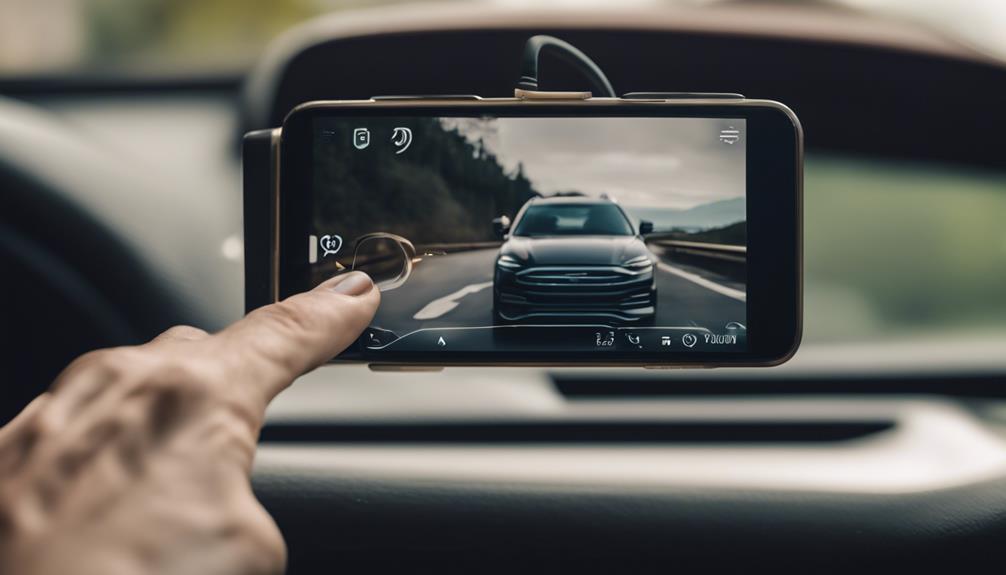
To guarantee peak performance with Android Auto, prioritizing the use of authentic cables is crucial for seamless connectivity and data transmission. It's recommended to utilize the original USB cable that came with your phone for the best Android Auto functionality. These original cables ensure compatibility and stable data transmission between the phone and the car, meeting the necessary standards for smooth operation.
Google stresses the importance of using the correct cable to avoid connectivity issues, emphasizing that opting for the original phone cable helps maintain a reliable and hassle-free connection experience. By using original cables designed specifically for Android Auto, users can ensure a smooth and efficient interaction between their devices, minimizing the risk of connectivity disruptions or performance issues.
Therefore, investing in original cables is a wise choice for individuals seeking a reliable and consistent Android Auto experience.
Potential System Diagnostics Revolution

The introduction of Android Auto's USB Startup Diagnostics tool marks a potential revolution in system diagnostics.
By evaluating USB cable health, conducting precise diagnostic testing, and enhancing device connectivity, this tool paves the way for improved user experiences.
With a focus on simplifying cable testing and ensuring peak performance, this innovation highlights the importance of quality USB cables for seamless connectivity.
USB Cable Health Check
Revolutionizing system diagnostics, Android Auto's latest update introduces a USB cable health check feature. This latest version of Android Auto now includes a USB Startup Diagnostics tool that allows users to assess the health of their USB cables effortlessly. The feature works by instantly testing the data transmission through the cable, providing users with immediate feedback on its functionality.
Here are some key points regarding this innovative addition:
- The diagnostic tool simplifies the process of identifying faulty USB cables that may lead to connectivity issues.
- Users can access the USB cable health check within the Connection Help menu, ensuring they're using a reliable cable for seamless connections.
- The feature emphasizes the significance of using high-quality USB cables to maintain uninterrupted connectivity.
- This introduction may pave the way for similar diagnostic tools in other operating systems, highlighting the importance of cable health in technological setups.
Diagnostic Accuracy Testing
Introducing a groundbreaking diagnostic accuracy testing feature in Android Auto's latest update, users can now effortlessly assess USB cable quality through data transmission checks. This new tool allows for instant identification of bad cables that may be causing connectivity issues, ultimately enhancing the user experience.
By simplifying the process of testing cables without the need for constant plugging and unplugging, this feature greatly improves convenience. It emphasizes the importance of using quality USB cables with proper specifications to guarantee reliable connections.
The potential impact of this diagnostic tool is substantial, as it could lead to more efficient system checks and quicker identification of connection issues. Android Auto users can now rely on this innovative feature to troubleshoot cable problems effectively, ensuring seamless connectivity while driving.
This advancement highlights the app's commitment to enhancing user experience and providing reliable solutions for common connectivity issues related to USB cable quality.
Device Connectivity Improvements
Amid the ongoing advancements in device connectivity, Android Auto's latest feature promises a potential revolution in system diagnostics. The new USB Startup Diagnostics tool embedded in Android Auto is designed to enhance device connectivity by evaluating the quality of USB cables.
This innovative feature enables users to swiftly pinpoint faulty USB cables that may be hindering seamless Android Auto connections in their vehicles. By conducting real-time evaluations, individuals can promptly determine whether their USB cable is the root cause of any connectivity issues between their phone and car.
Google emphasizes the importance of using original, manufacturer-provided USB cables to guarantee excellent performance and reliable connections. This development underscores the critical role that high-quality USB cables with proper specifications play in establishing and maintaining efficient device connectivity within the Android Auto ecosystem.
- Real-time evaluation of USB cable quality.
- Swift identification of faulty cables impacting connectivity.
- Emphasis on using original USB cables for excellent performance.
- Highlighting the importance of quality cables for reliable connections.
Frequently Asked Questions
Does USB Cable Affect Android Auto?
A faulty USB cable can indeed impact Android Auto performance. It can lead to connectivity issues, hindering the smooth operation of the app.
Google's Android Auto now features a USB Startup Diagnostics tool that detects problematic cables by evaluating data transmission and startup barriers.
Peak performance is guaranteed by using original phone cables and verifying compatibility.
Selecting the right cable is essential for a seamless Android Auto experience and to prevent disruptions in connectivity.
Why Is My USB Not Working With Android Auto?
When Android Auto fails to work with a USB cable, it might be due to cable compatibility issues. Certain cables may not meet the necessary data transmission standards, causing connectivity problems.
Users should verify that they're using compatible cables recommended by the manufacturer to guarantee seamless operation. Failure to do so can lead to unreliable connections and frustration.
It's important to use the correct cables to prevent disruptions in Android Auto functionality.
Why Is My Cable Not Working With Android Auto?
When a cable isn't functioning properly with Android Auto, it may be due to various reasons such as cable damage, compatibility issues, or insufficient power delivery.
To troubleshoot, users should first confirm they're using a high-quality, original USB cable. Additionally, checking for physical damage, trying different cables, or updating the Android Auto app and phone software can help resolve connectivity issues.
Follow these steps to pinpoint and address the problem with the cable in Android Auto.
How Do I Know if My USB Cable Is Not Working?
When determining if a USB cable is malfunctioning, users should pay attention to data transfer consistency. If the USB cable isn't working properly, it may cause erratic transfer speeds or connectivity issues.
Android Auto's USB Startup Diagnostics feature can help identify such problems by checking data transmission and warning users of potential cable damage.
For best performance, it's advisable to use the original USB cable packed with the phone.
Conclusion
To sum up, using high-quality USB cables is crucial for maximum data transfer efficiency. Just like how a well-maintained car runs smoothly on a clean road, a good cable guarantees your data travels seamlessly from one device to another.
By investing in original cables and regularly testing for faults, users can avoid potential data transfer issues and enjoy a smoother digital experience. Remember, the quality of your cable can make all the difference in your tech journey.
